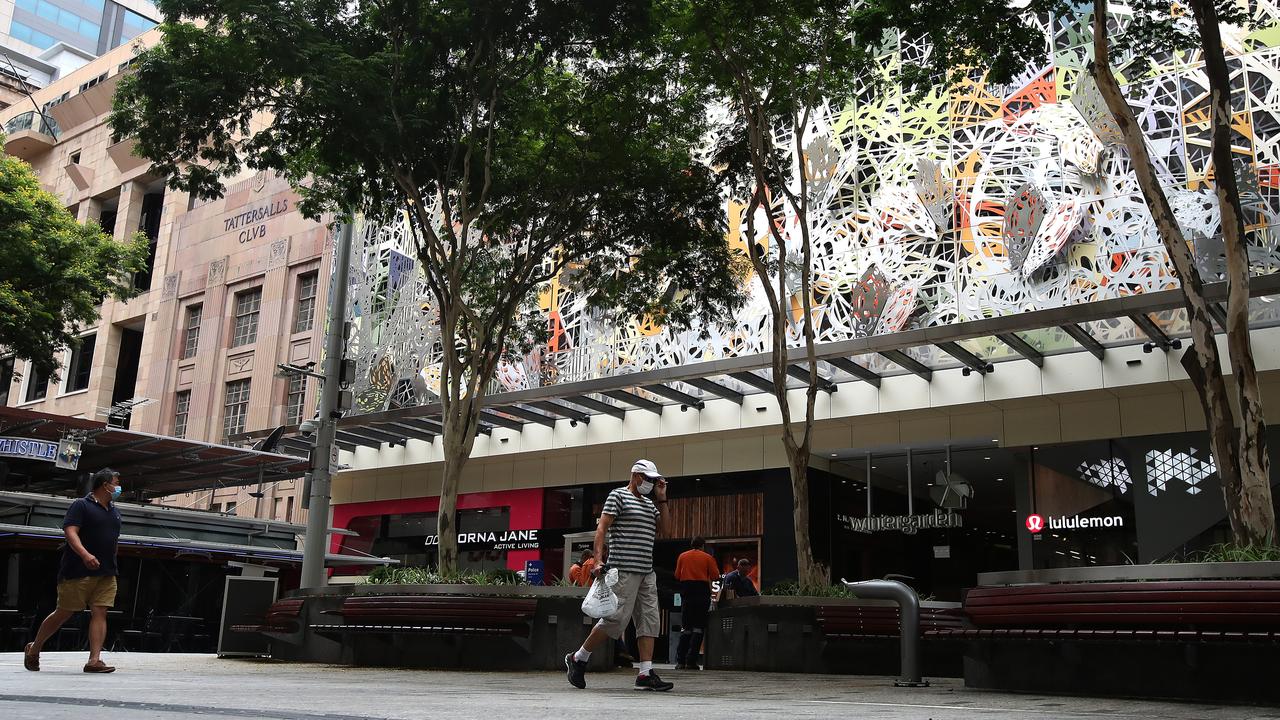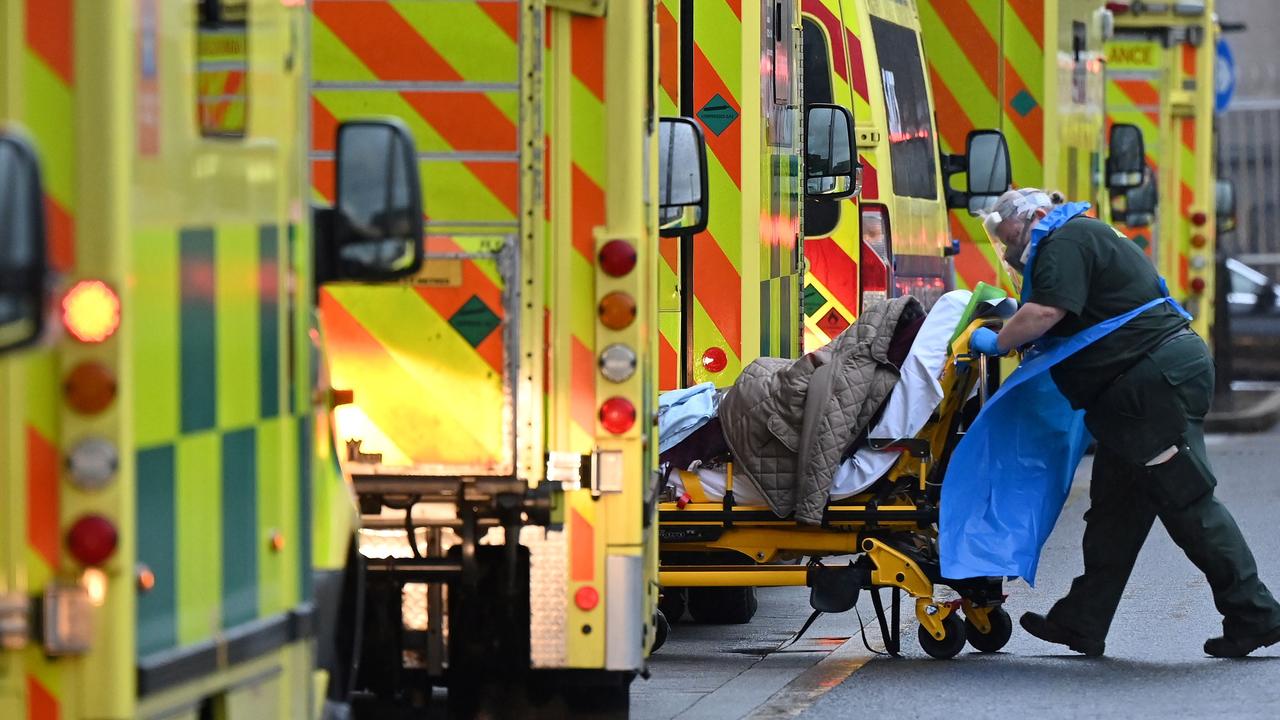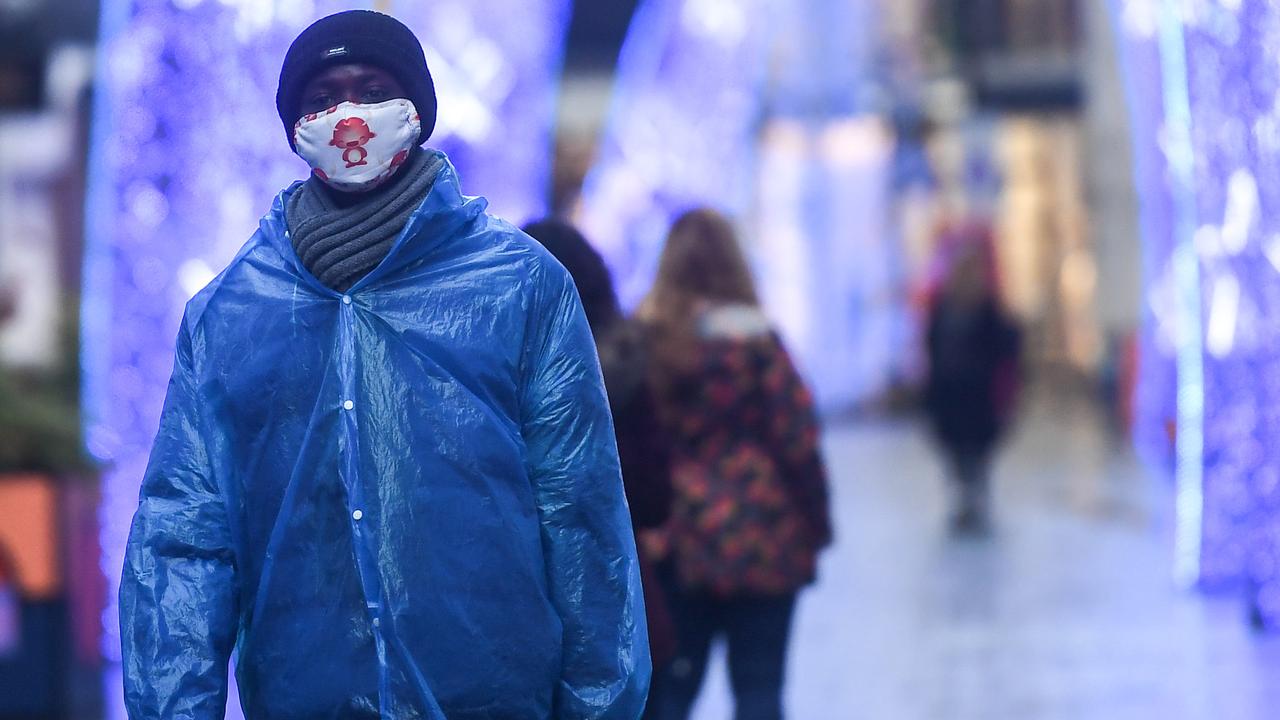How mutant coronavirus strain from the UK infiltrated Australia
The discovery of just one coronavirus case was enough to plunge Brisbane into a three-day lockdown – but this was no ordinary infection.
The discovery of just one coronavirus case in Brisbane was enough to shut down the city last week and force Australia to cut its overseas arrivals by half – but this case was no ordinary infection.
It was Australia’s first case outside hotel quarantine of a mutant strain of the coronavirus, known as B117, which is highly infectious and has already caused havoc in England, where one in 50 people are thought to have an active case of COVID-19.
The United Kingdom’s skyrocketing infections are partly being blamed on B117, with the government forced to cancel Christmas and introduce a third lockdown that could stretch out to March.
Australian authorities have been on alert for signs of the new strain and several cases have been detected in hotel quarantine in several states including NSW, Victoria, South Australia, Western Australia and the Northern Territory.
But it was Australia’s first community case – detected in a hotel quarantine cleaner in Brisbane – that sent authorities scrambling last week.
The discovery of the case saw Brisbane, along with Logan, Morton, Ipswich and Redlands council areas, declared hot spots and placed into a three-day lockdown starting from 6pm on Friday.
Prime Minister Scott Morrison backed the lockdown, describing the Queensland Government decision as “very wise” and also announced the areas would be considered Commonwealth hot spots, despite not meeting the criteria.
“The situation in Brisbane is a serious situation,” Mr Morrison told reporters on Friday.
RELATED: Authorities approve jab as UK faces crisis

The threat was considered so concerning that Australia also reduced caps on international arrivals by 50 per cent until February 15, and passengers from all flights from the UK must return a negative COVID result before being allowed to board a plane.
Masks are now mandatory on all domestic and international flights as well as in all airports.
All workers who work within the quarantine system, including cleaners and bus drivers who transport travellers from airports, will also be tested for the coronavirus daily.
Australia chief medical officer Professor Paul Kelly said the decision to declare Brisbane a hot spot was to ensure the particular strain did not begin circulating in Australia.
“The reason is because it will be much more difficult to control,” he said.
“All of the things we’ve done in the past, all of those controls we’ve talked about in terms of test, trace, isolate, all of those personal measures, even some of the other measures we’ve had to do in certain times during this pandemic will become less effective if this virus was to establish itself in Australia. So that’s why we’re going hard and fast and strong.”
‘NO ORDINARY CASE’
Some might consider shutting down an entire city due to the discovery of just one coronavirus case to be extreme but the Prime Minister said rules needed to be changed when new information and uncertainties emerged.
“I know there’ll be some in Brisbane today who’ll be going, ‘Well, why is this necessary? That seems a bit rough. There’s only one case.’ Well, this isn’t any ordinary case,” Mr Morrison said on Friday.
“This is a very special case and one that requires us to treat things quite differently until we know more and we will learn much in the next few days,” he said.
Mr Morrison said the strain was likely to become the dominant strain in the very near future.
“This strain is some 70 per cent more transmissible than the previous strains of the virus,” he said.
Chair in Epidemiology at Deakin University, Professor Catherine Bennett has backed the decisions but told news.com.au authorities were yet to fully understand the threat of B117, which was why they were making such aggressive moves.
“It’s better to be safe than sorry in this situation,” she said.
“They may be extra careful this time but next time (some measures) may not be necessary.”
So far close contacts of the cleaner have all tested negative to the coronavirus and if this remains the case, Prof Bennett said states like NSW may not introduce “circuit breaker” lockdowns if other mutant cases were identified, as the costs may outweigh the benefits.
‘STILL MANAGEABLE’
Prof Bennett said modelling showed the mutant strain was between 50 and 70 per cent more infectious but while this seemed significant, it needed to be put into context.
She said Australia, unlike the UK, was not dealing with a significant surge in the virus and so a 50 per cent increase in infectiousness could still be manageable.
For example, she pointed to the 27 cases linked to the Black Rock Restaurant cluster in Victoria. She said an extra 50 per cent in infectiousness, might see another 15 people infected as part of that outbreak.
“That’s manageable still,” she said. “You’re still going to have 40 per cent of people who never pass it on.”
Prof Bennett also noted there were likely other factors in play in places in Ireland, which saw its cases soar from around 300 cases in mid-December, to around 3500 cases three weeks later.
RELATED: Two weeks until London is crippled

Prof Bennett said about 9 per cent of the cases in December were related to the B117 variant and this had increased to about 25 per cent by January.
“Even if you take all the new variants out of the mix, an increase from 300 cases in three weeks to 3500, is a massive increase,” she said.
“You’ve had a more than 10-fold increase that isn’t anything to do with the B117 strain.
“In Ireland, it’s very clear there was more happening than just this variant, they lost control of cases over Christmas and New Year as they may have released restrictions too early.”
HOW FAR DO WE NEED TO GO?
Prof Bennett has welcomed changes to restrictions since the B117 variant was discovered in Australia and noted the cleaner’s infection may have been detected four days earlier if daily COVID testing had been required at the time.
University of NSW Professor Mary-Louise McLaws, who is a member of a WHO advisory panel on COVID-19, had also previously recommended testing frontline staff daily and she welcomed the change.
Other experts have suggested going further, including banning all flights into Australia.
But Mr Morrison said it was not recommended by the Australian Health Protection Principal Committee (AHPPC).
“Australia needs to continue to function,” he said. “For example, vaccines need to come to Australia … there are people who need to come to Australia who have critical skills.
“Australia must maintain practical contact to ensure that we maintain the functioning of the nation.”
He said there were many unknowns associated with this strain and over the next four weeks authorities would be in a better position to understand the impacts of the new strains.
While the mutant strain is concerning, Prof Bennett said it was not yet a “panic situation” in Australia as the country was not dealing with a large scale outbreak of the coronavirus, unlike the UK.
“We want to be cautious but we don’t want to overstate and panic,” she said.
“In Australia we are managing outbreaks, keeping case numbers very low, and constraining secondary infections and the virus being passed on by employing aggressive contact tracing.
“That will work even if there are more infections.
“The methods don’t change.”
However, Australia is adapting to the new threat, including increasing the quarantine period for those who test positive for the mutant UK strain.
RELATED: Staggering number of infected in London

Previously, anyone who tested positive to COVID-19 while in hotel quarantine could leave once they stopped having symptoms for three days and at least 10 days had passed since they tested positive.
They will now have to wait until at least 14 days after their positive test.
It comes after an alert was issued last week when a woman who tested positive for the UK variant of coronavirus took a Jetstar flight from Victoria to Queensland. She had completed 10 days of her quarantine in Victoria before being allowed to leave as she no longer had virus symptoms but an alert was later issued when genomic testing revealed she had the more infectious strain.
While it’s not known whether a 14-day quarantine is strictly necessary as it’s unclear whether the mutant strain stays infectious for longer than the other strains, Prof Bennett said it was one of the precautions authorities were taking.
“We are still in a learning phase, some things might be excessive but we are still learning and it’s best to be cautious.”
charis.chang@news.com.au | @charischang2




